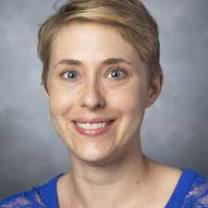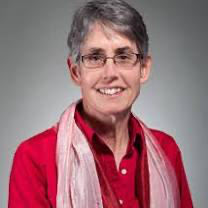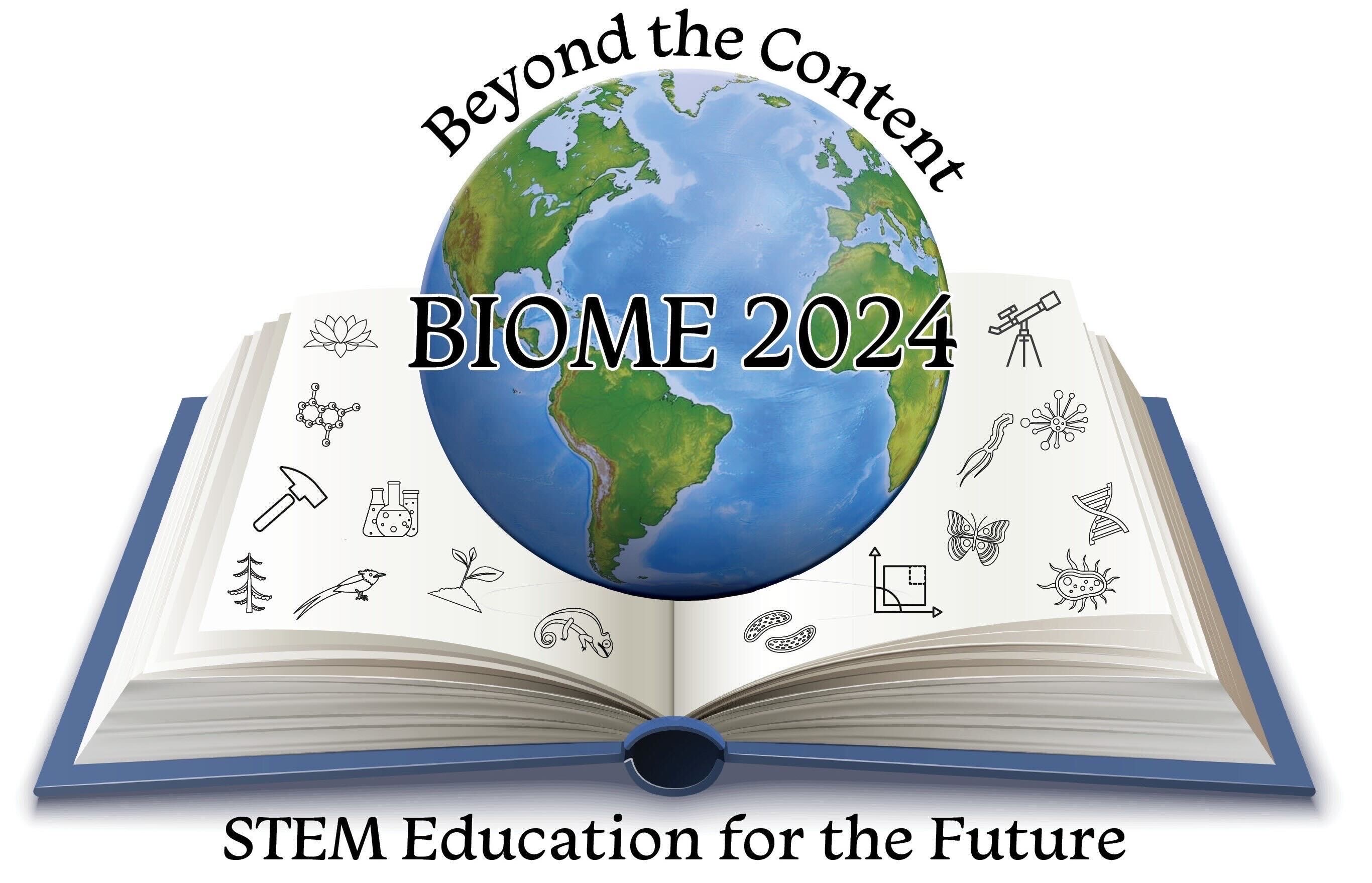BIOME 2024 Keynote Speakers
We are thrilled to feature two keynote presentations at BIOME 2024 happening this July 15-19. Read more about each speaker, their passion and get a feel for what you can expect to learn from their keynote at BIOME 2024. Haven’t applied yet? The deadline is Friday. Click here to apply.
Introducing Tessa Andrews
Monday, July 15, 2 - 3 PM EST
 About: Tessa Andrews is a Meigs Distinguished Professor in the Department of Genetics at the University of Georgia. Her research group, which includes undergraduate researchers, graduate students and postdocs, specializes in biology education research and studies faculty and departments in their pursuit to use evidence-based and inclusive practices. Read more about her bio on our webpage.
About: Tessa Andrews is a Meigs Distinguished Professor in the Department of Genetics at the University of Georgia. Her research group, which includes undergraduate researchers, graduate students and postdocs, specializes in biology education research and studies faculty and departments in their pursuit to use evidence-based and inclusive practices. Read more about her bio on our webpage.
Getting to Know Tessa:
How and why did you get involved with STEM education, with emphasis in inclusivity, accessibility and beyond the content?
I got involved in undergraduate STEM education research as a doctoral student studying evolutionary biology. I was handed a few papers by my advisor and was shocked to learn that there had been evidence about how to transform STEM courses to be more effective and more inclusive from at least a decade before I entered college. And yet, I didn’t see that happening in my courses. To me, that felt like a problem that needed to be addressed, and I remain committed to that a decade and half later.
All of my research focuses on this problem of translating what we learn from scholarship into classroom practice. That’s the only way that our research discoveries actually impact students.
What change are you working toward in STEM education?
My work focuses on increasing the use of evidence-based and inclusive teaching strategies in college STEM classrooms. We come at this problem from a few directions. Some work focuses on discovering how faculty can be better supported to learn about and effectively implement these strategies. Other work turns an eye toward the system, including how departments and institutions need to change to support faculty in their teaching.
Introducing Robin Greenler and Evangeline Su
Thursday, July 18, Noon - 1 pm EST
About: Robin Greenler engages faculty, future faculty and national learning communities to support creation of equitable and evidenced-based practices for STEM faculty and more socially just and inclusive experiences for undergraduate students.
Co-presenting with Robin is Evangeline Su, a member of the NSF E.B. Johnson INCLUDES Aspire Alliance National Change Team and SEER Institute at the University of Wisconsin - Madison. Read more about their bios on our website.
Getting to know Robin:
My initial involvement in STEM education reform was fueled by passion—passion for science and passion for social justice. I wanted the power to ask the questions to be available to everyone. Those who define the questions drive the narrative. As an early career scientist, I saw too much of the business of science controlled by a white, western, male perspective. While white and western, as a queer, Quaker, part-time farmer, young woman, this was not even close to my native way of knowing.
The STEM education reform I was involved in during the 1990s was about giving over the power to observe, ask questions, design experiments and share out understandings. For many students in the K-16 educational environment, this was a whole new way to learn about science. It was inspiring to see the questions asked, designs envisioned, and understandings gained from simply letting kids DO science rather than learn about others who DID.
In the last decades I have had the privilege to extend my work in STEM education reform more deeply and explicitly in support of social justice, equity and inclusion. I have seen the wealth that comes when more voices are part of the conversations as well as the systemic structures that block that. In order to really start to understand our complex and urgent questions, we desperately need the perspectives, understandings and truths that are carried by each of us. And that means teaching in ways that empower all voices to find passion and ask questions.
Getting to know Evangeline:
How and why did you get involved with STEM education, with emphasis in inclusivity, accessibility and beyond the content?
As a neurodivergent woman of color, I struggled with feeling like STEM education spaces weren't made for me. Because of my name and physical appearance, I experienced a lot of bias and assumptions that didn’t match my reality. The lack of fit collided with my interest and curiosity about the world. As I taught, advised and mentored others in STEM fields, I came to learn that I wasn't alone in feeling that more needed to be done for inclusion, accessibility and to reach students beyond the content. Learning that opened a huge window for me as an instructor. I found ways to run my introductory STEM courses that worked with my own collective and cooperative thinking. I structured my classroom with a scaffolded peer mentoring/learning assistant style program, peer groups and experiential learning so students could feel supported and see science in their everyday lives and surroundings. I have always wanted my students to see science alive in the world around them and in their contexts.
Beyond that, my own experiences struggling to speak up for cultural reasons and for the ways my neurodivergence interfered, I wanted to provide a classroom where people could speak up safely and freely. For me, reducing as much as I could of the traumas and re-experiencing of those traumas that students have experienced in education spaces has been a priority. In various ways, I continuously strive to bring a trauma-informed lens to equitable STEM education.
About BIOME 2024: Beyond the Content
- Summer Session: July 15 - 19, 2024
- Fall Working Groups: September - November 2024
BIOME 2024 is more than just a conference, it's a deliberate journey shaping the future of STEM education. Join for the summer session this July and continue with ongoing fall working groups, advocating for interdisciplinary approaches in STEM teaching methods.
BIOME provides meaningful professional development, deep networking opportunities and engagement in a like-minded, forwarding-thinking community, leaving participants with new perspectives, teaching styles, camaraderie and so much more. 
This year is focused on "beyond the content" and prioritizes inclusivity, diversity and shaping students for real world challenges. Read more about BIOME 2024 and apply by Friday, May 31, 2024 to join this powerful, unique opportunity.